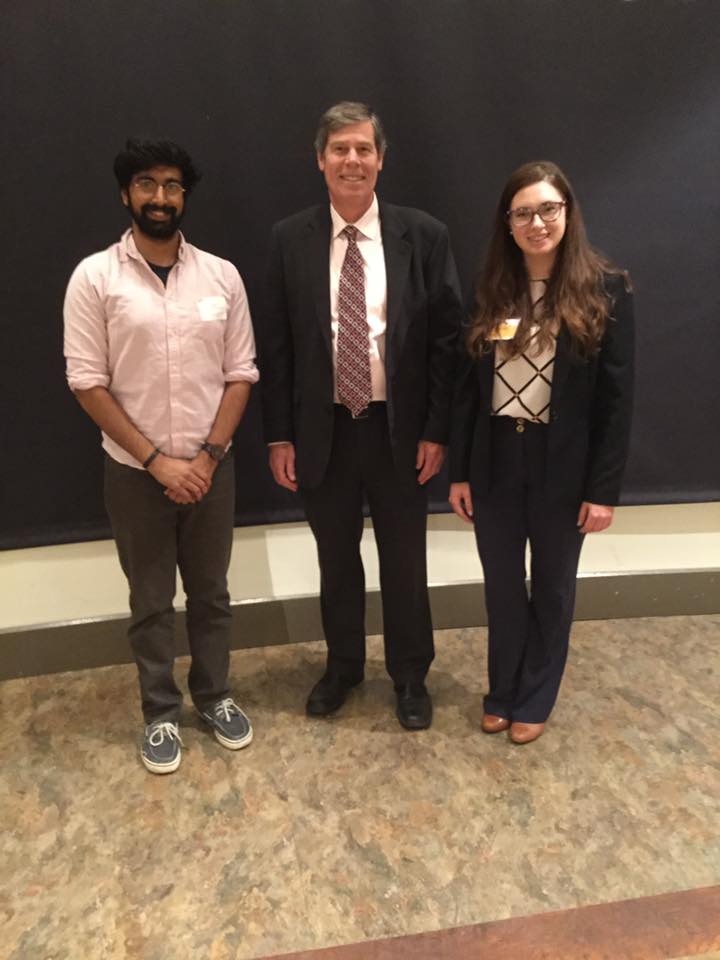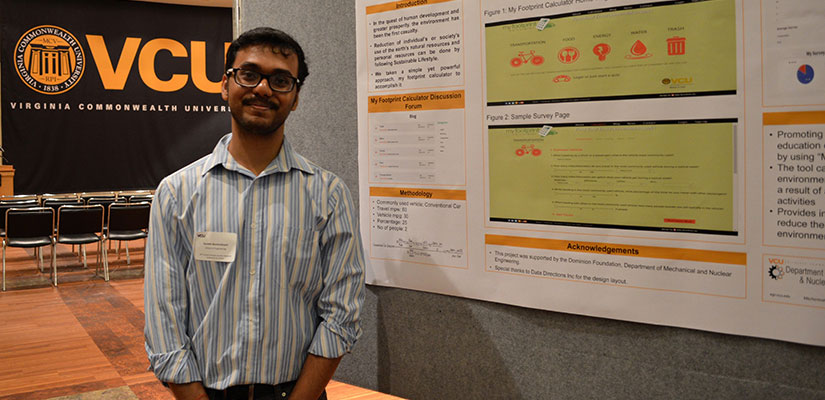By Leah Small
University Public Affairs
Students tackled complex topics such as improving maternal health care in India and extending medication shelf life last week at the 20th Annual Graduate Student Research Symposium & Exhibit.
The Graduate Student Association-sponsored event showcased projects from more than 70 researchers as part of the seventh Annual VCU Research Weeks. Fields across multiple disciplines in the sciences, arts and humanities were represented.
VCU News interviewed* several researchers about their work:
* Interviews are in the student’s words with edits by VCU News for clarity and brevity.
Living green
Project: “My personal footprint calculator”
Researcher: Karthik Mummidisetti, mechanical and nuclear engineering, School of Engineering
Mentor: Sama Bilbao y León, Ph.D., associate professor and director of nuclear engineering programs
What was your goal?
We wanted to promote the sustainable lifestyle by making people more cognizant of how they impact the environment. Nature is the most beautiful thing on this earth. I love the environment and I want to be part of preservation efforts. So, I decided to build an app that calculates a person’s ecological footprint that can be used on both Android and iOS [Apple] devices.
The app also provides a forum where users can discuss ways to reduce their contribution to CO2 emissions. There are other footprint calculators out there, but we want to complement them. We are a small, but important, drop in a mighty ocean working to make a change.
I'm incredibly thankful to VCU’s Department of Mechanical and Nuclear Engineering in the School of Engineering, and The Dominion Foundation, for providing funding and support throughout the project. I also want to thank Dr. Bilbao y León for her patient guidance and encouragement. She is someone I consider a friend and a mother and I’m so appreciative of that.
What was your methodology?
The app measures a user’s impact through a survey that assesses their daily choices in five categories: transportation, food consumption, trash disposal and water and energy usage. App users are asked about 10 questions or more, depending on initial responses within a category. For example, if a respondent answers that a car is her primary mode of transportation, she will be asked how many miles she drives on average and to provide the model and year of the car. If an individual bikes, as I prefer to do, his or her level of CO2 emissions within a given category will be less. I have programmed the app to calculate an individual’s CO2 emissions based on his or her survey answers. The aim is to allow the user to focus on the areas that need the most improvement.
How can this app reach a wide audience?
I am working on getting this app out to the public for free. I want it to be free because I want as many people as possible to adopt the sustainable lifestyle.
Click here to read more interviews and to see the full list of winners.

F. Douglas Boudinot, Ph.D., dean of the VCU Graduate School, with two students who tied for second place: Emil Iqbal, College of Humanities and Sciences, for “Ribosomal incorporation of backbone modified amino acids via an editing-deficient aminoacyl-Trna synthease” and Shani Levit, School of Engineering, for “Electrospinning to extend shelf-life and stability of nanomedicines.” Levit is a doctoral student in the Department of Chemical and Life Science Engineering. Her adviser is Christina Tang, Ph.D., assistant professor in the Department of Chemical and Life Science Engineering.
